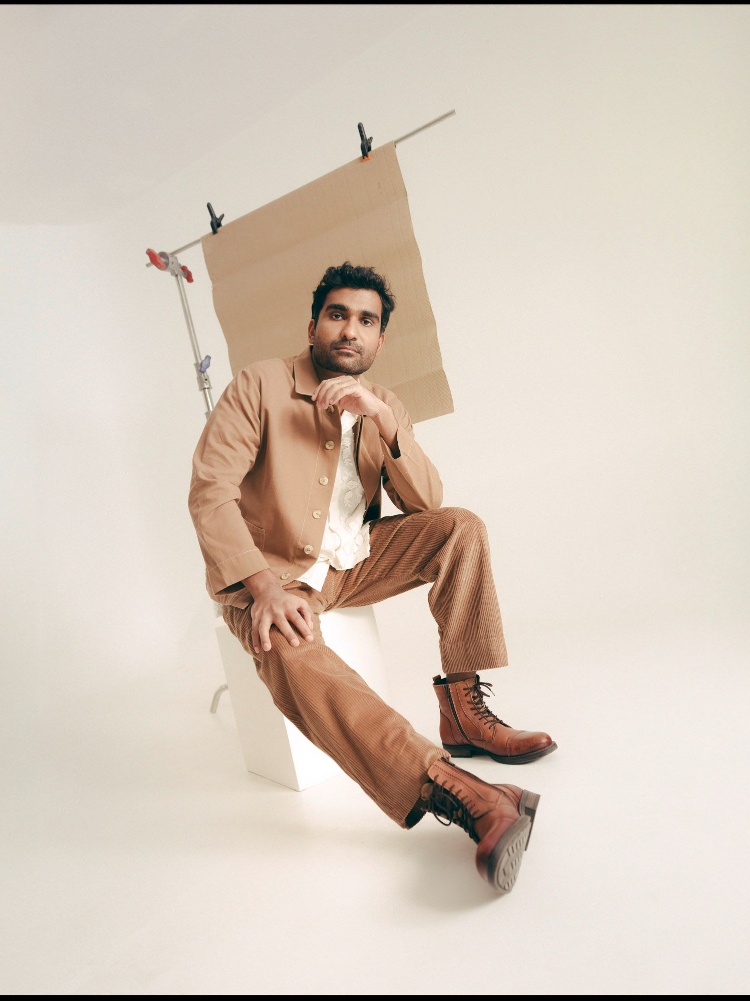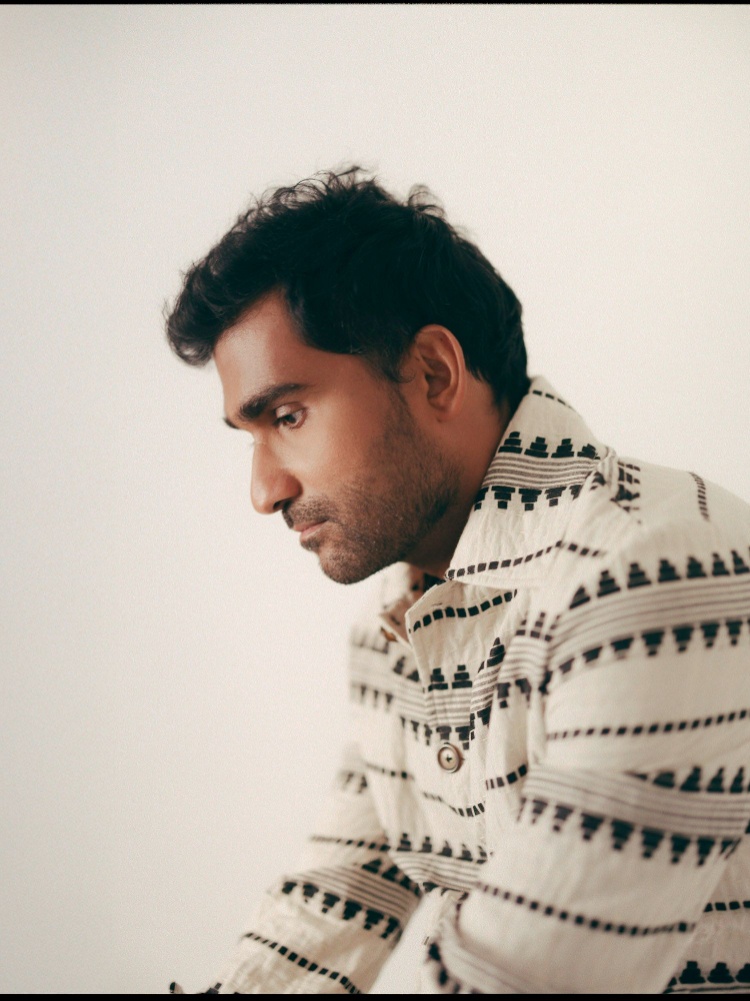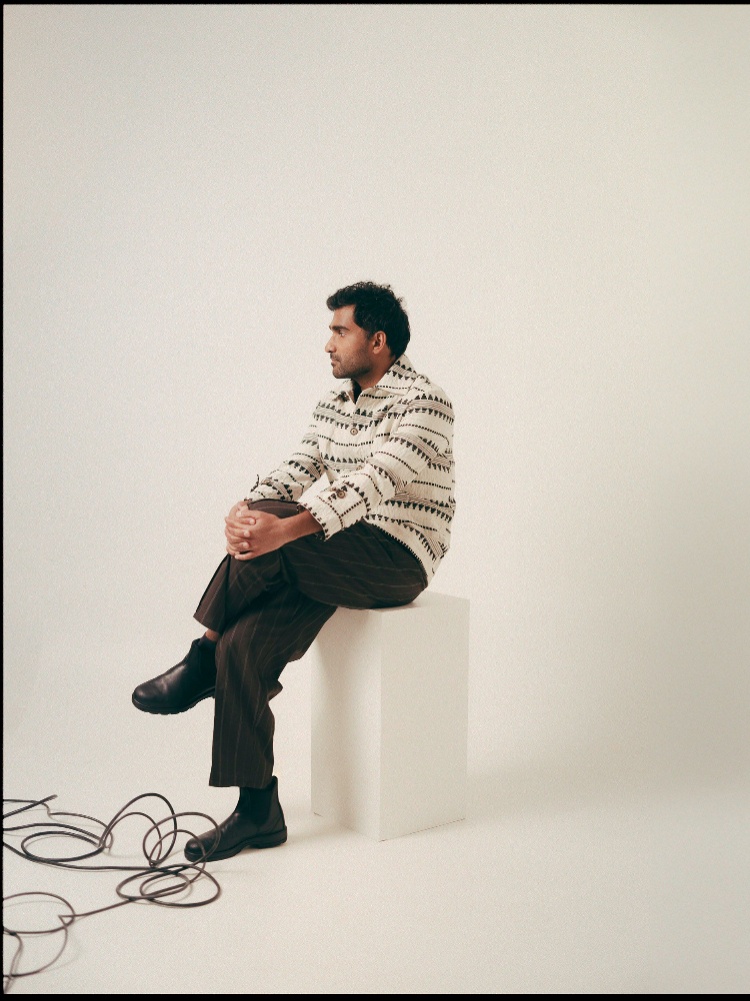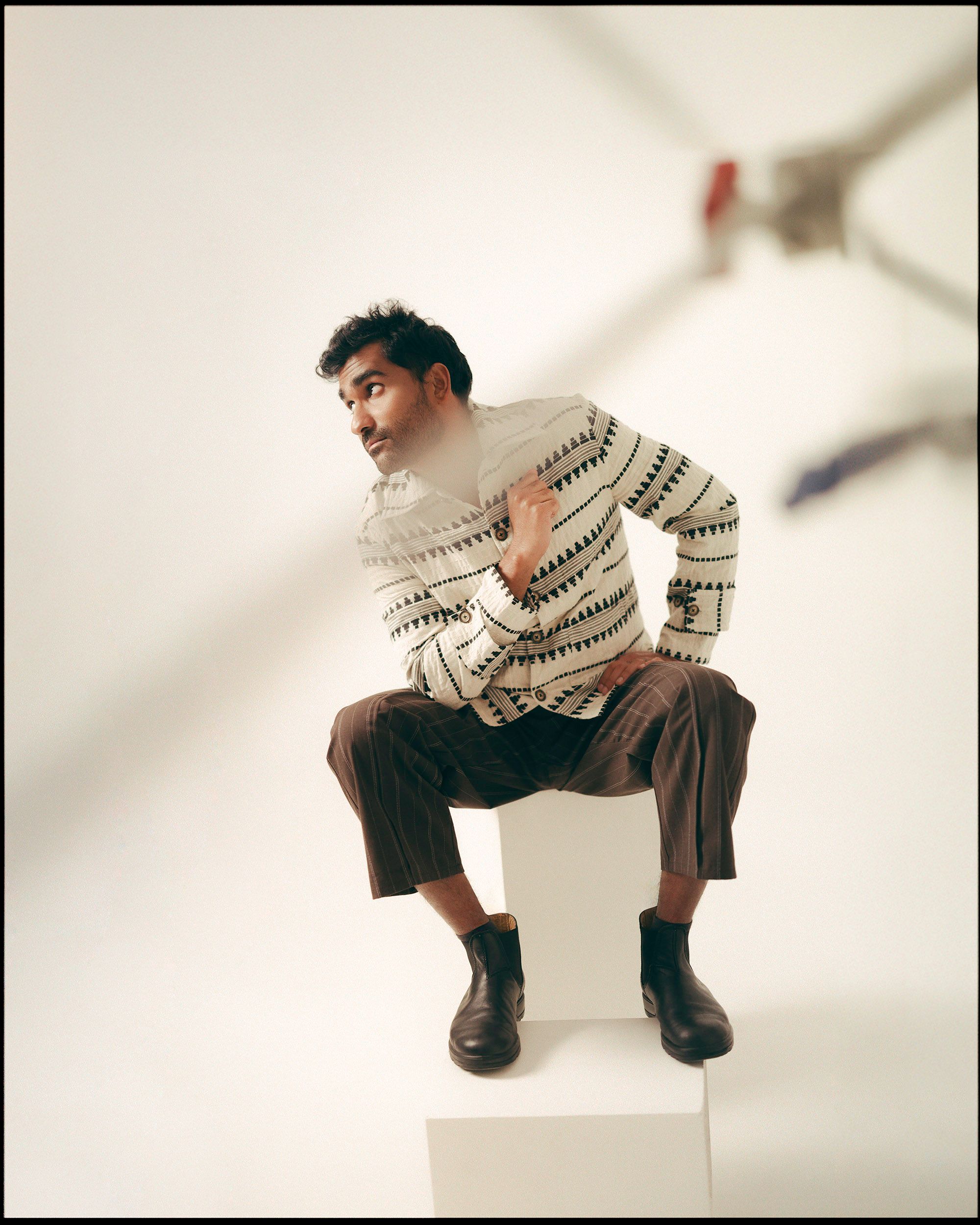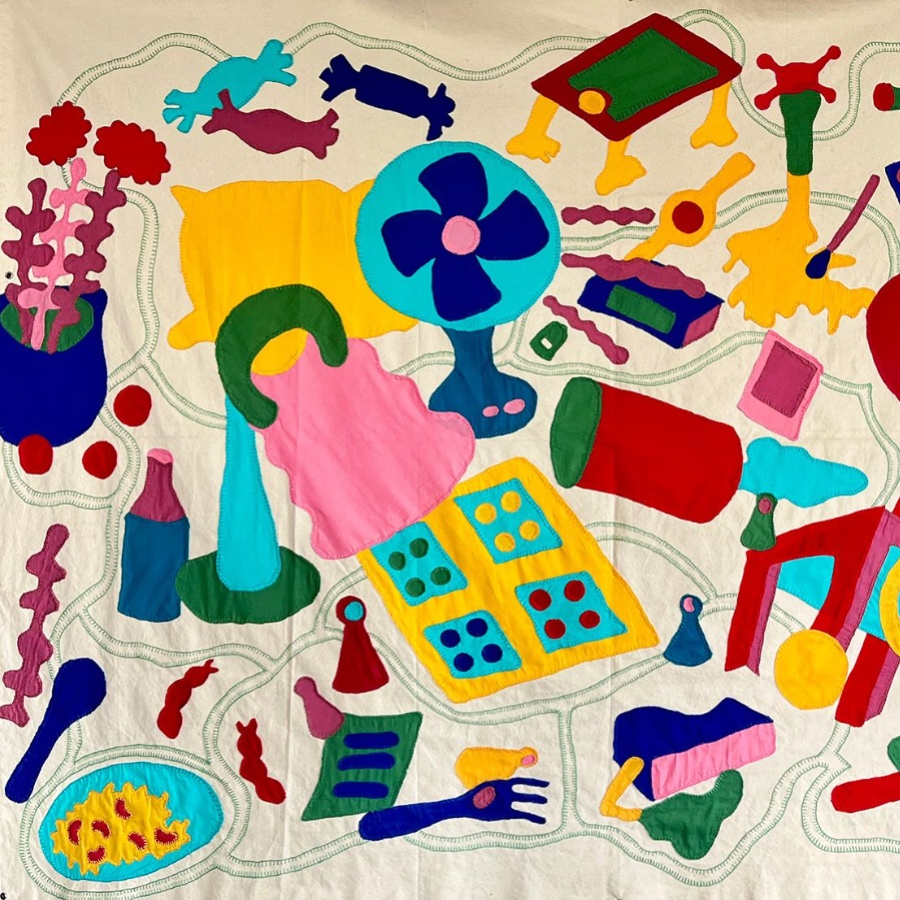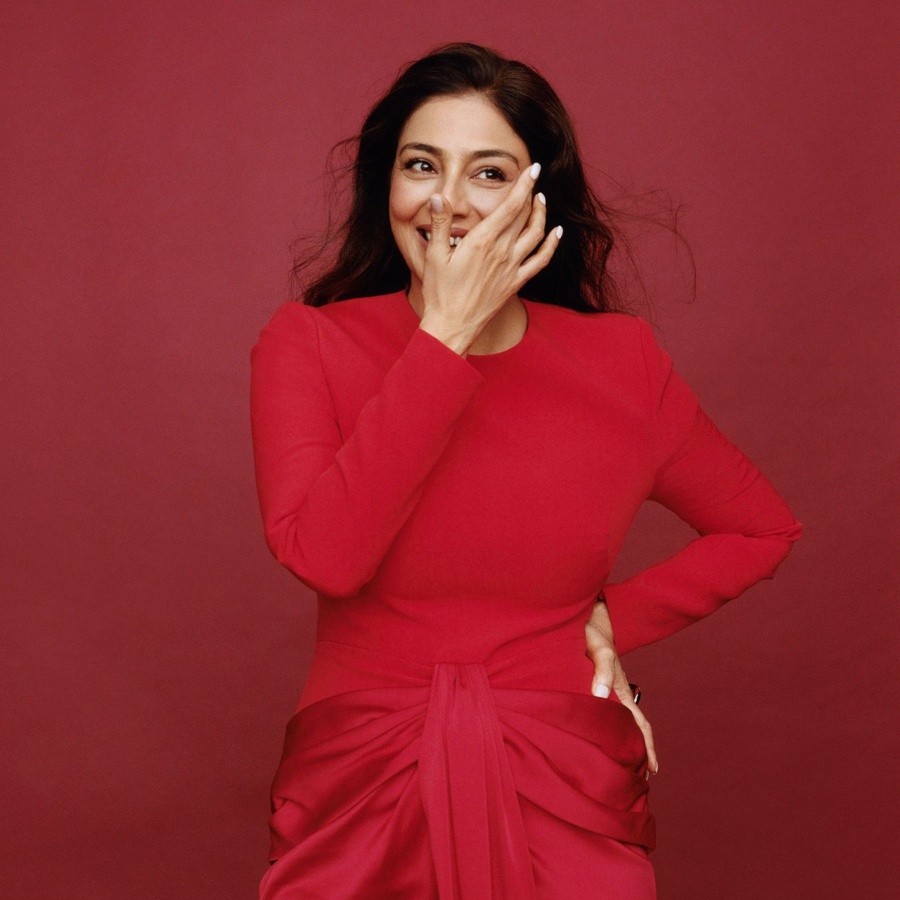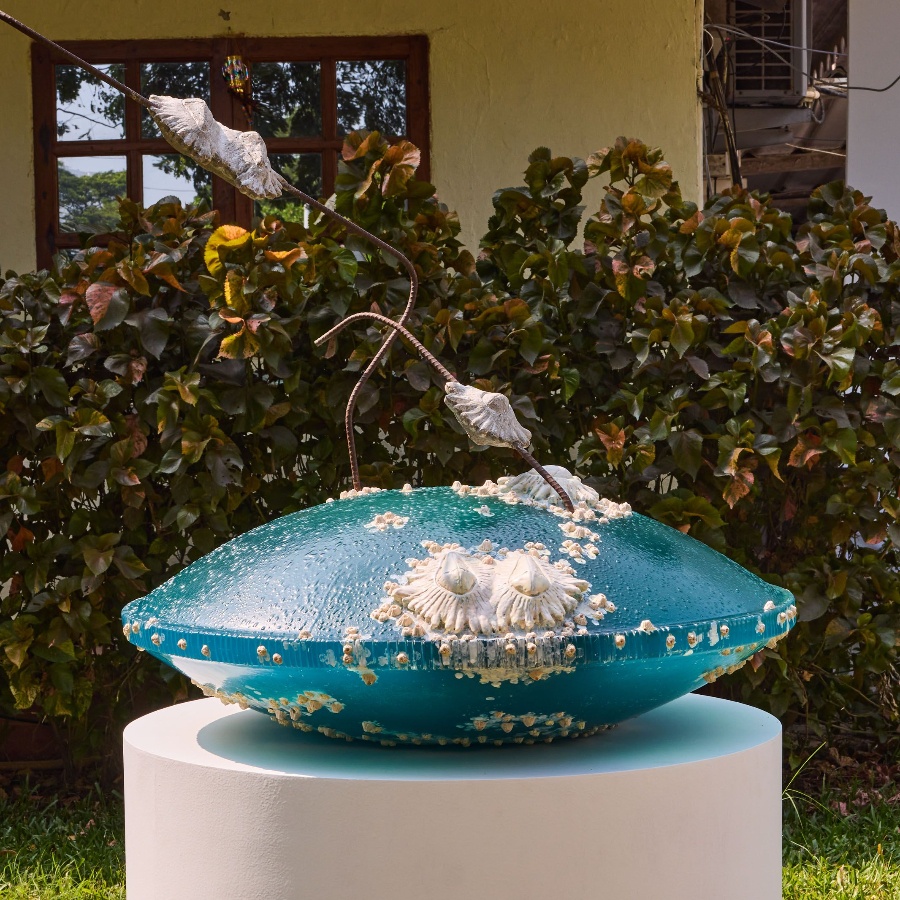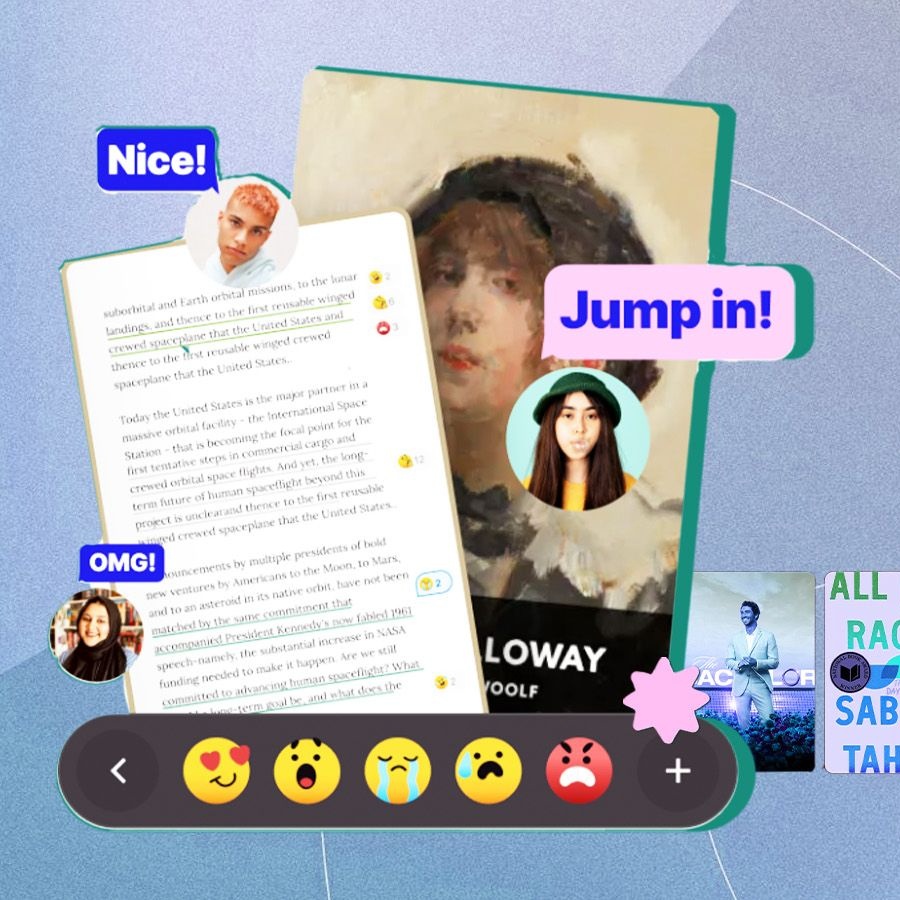A decade ago, Prateek Kuhad stood hunched over a mic at Delhi’s Akshara Theatre. In front of him sat a small audience who’d decided to spend the day savouring the city’s budding independent music scene at a small (and now defunct) arts festival. Behind him stood a large black loudspeaker and a drum set; longtime collaborator Nikhil Vasudevan sat pounding the drums with his left hand and shaking a rattle with his right, a tambourine waiting at his elbow.
In 2013, Kuhad, then a budding singer-songwriter from Jaipur via New York (with a short-lived career in finance), had had his first taste of fame after the release of his EP Raat Raazi, and an appearance on Pepsi MTV Indies. A year later, against a backdrop of paper bunting, a plastic poster with “DIY DAY” written on it in all-caps Comic Sans, stood Kuhad, dressed in a plain charcoal tee, maroon chinos and simple sneakers, his hair neatly parted, and an acoustic guitar slung across his slight frame.
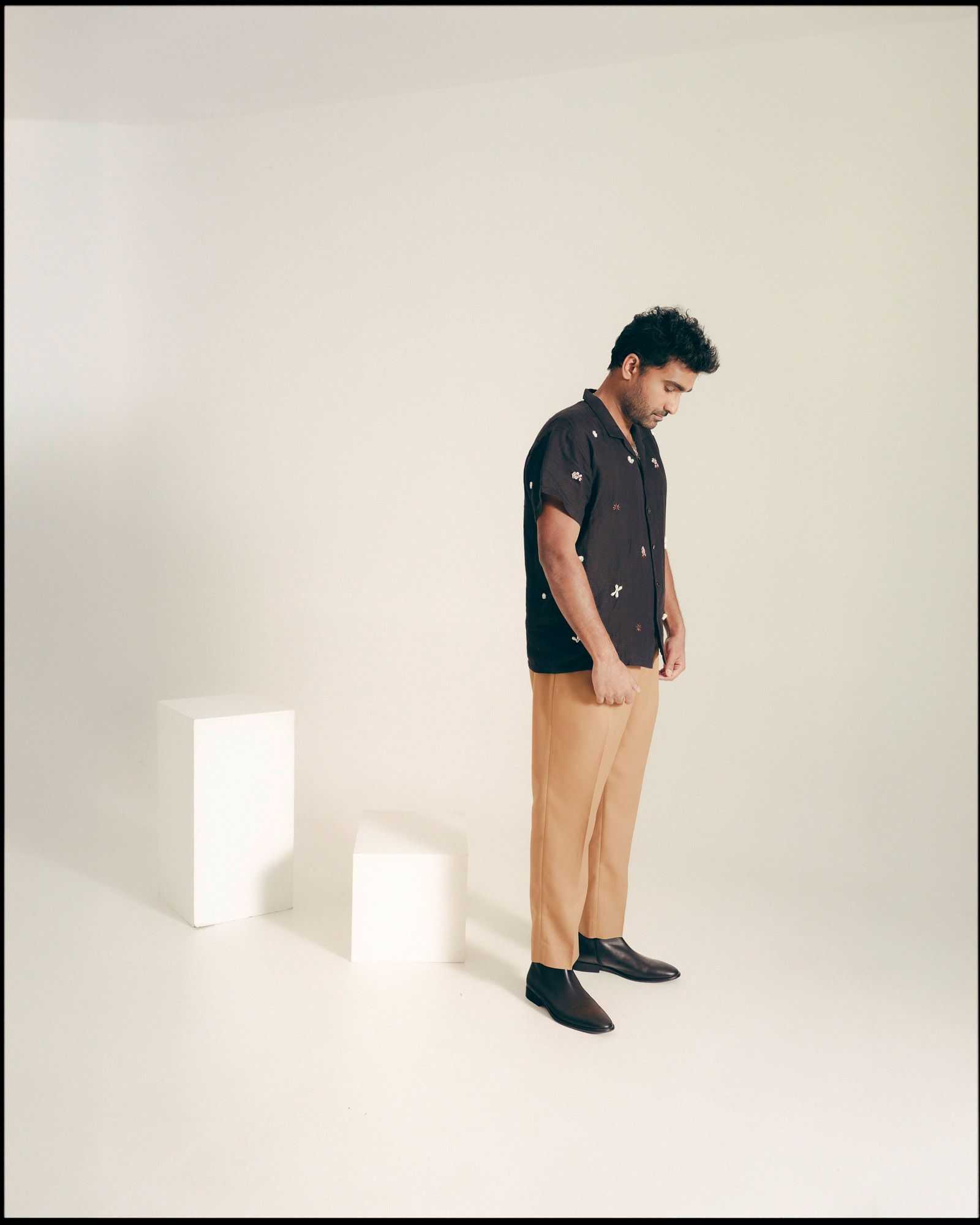
As he sang his breakout hit ‘Tune Kaha’, Kuhad’s feet were glued to the spot on that wooden stage, his body tense with concentration. He dropped no false notes, but he had the distinct aura of a nervous schoolboy on stage at assembly rather than one of the most exciting Indian musicians in the making.
This was five years before then US president Barack Obama became his most unexpected champion, mentioning his song ‘cold/mess’ on a list of his favourite music of 2019.
Fast forward to last month, when Kuhad stands on a much larger stage at the Everest Hotel in Kathmandu, Nepal—the first stop on the second leg of his ongoing 48-city Silhouettes tour. This time, he is dressed in a white chikankari shirt and pants, his hair sculpted into a trendy mess. Vasudevan is on percussion duty again, but now he has four other bandmates for company on guitars and keys. ‘Tune Kaha’ is fourth on his set list heaving with hits that flawlessly pour out of Kuhad and his fans in the way that only a played-on-repeat classic does.
Just as bewitching is Kuhad’s body language, all smiles and easy swaying, amplified on an LED screen, where shots of his performance merge with wide ones of the audience. A definite pivot from the template VFX that has backlit his performances in the past, it’s part of a concept put together in collaboration with Delhi-based creative director Aaquib Wani. It’s a visual spectacle that his fans in India will be treated to on the next leg of the tour, beginning with Hyderabad on November 8.
If you couldn’t already tell—from all the magazine shoots and Reels collabs with NY-based food influencers, and the globe-straddling scale of the Silhouettes tour—his meditative face beaming upon the audience confirms it. Now, 12 years into a flourishing career as one of India’s most-loved singer-songwriters—with a discography of five EPs and two albums, a big-label record deal, countless festival appearances, tours in different corners of the world, an opening slot for Ed Sheeran and a million-plus strong following on YouTube that tunes in from all parts of the world—Prateek Kuhad has, at last, entered his main character era.
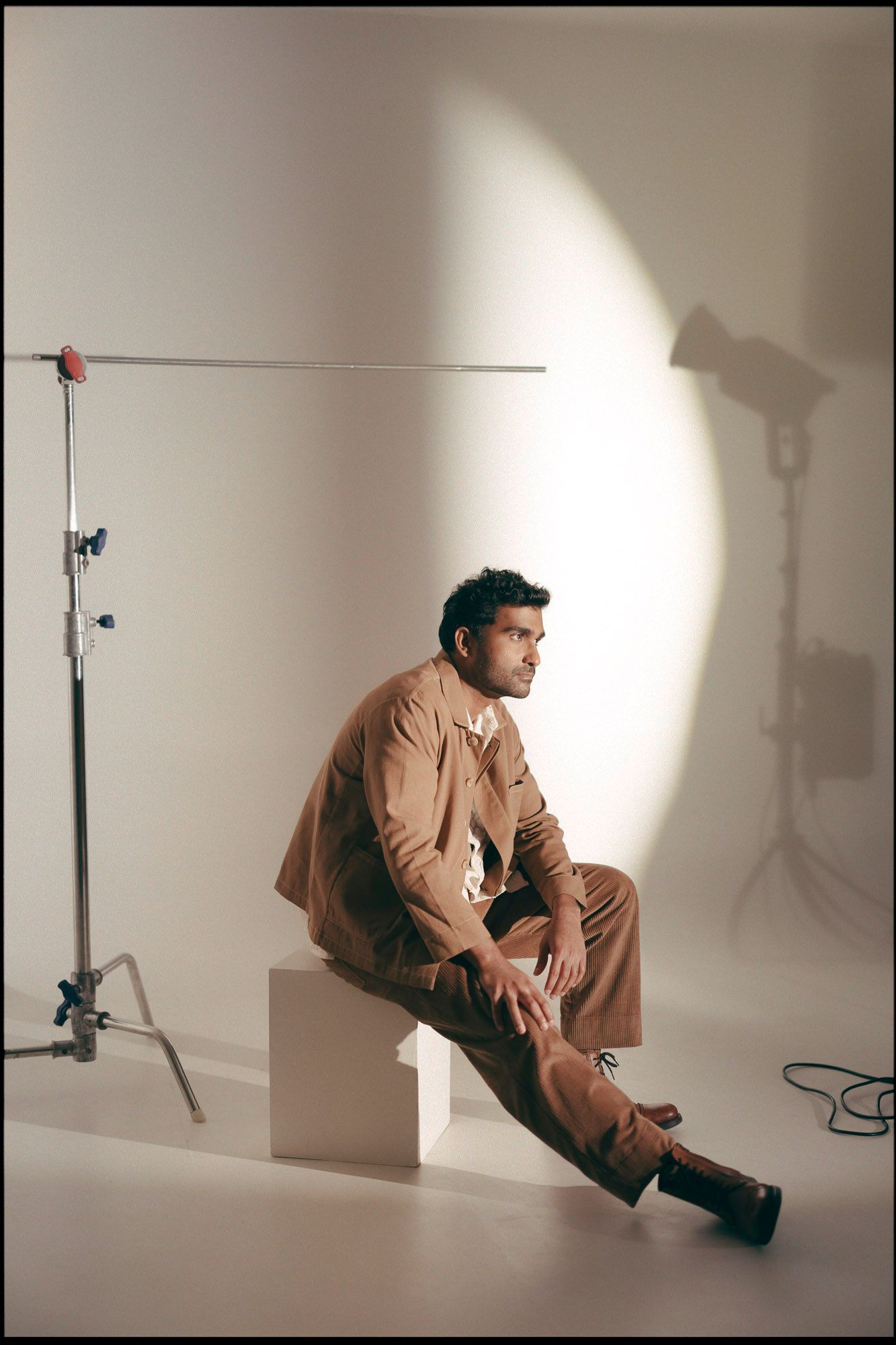
Naushad Ali trousers and jacket; Bhaane shirt
“Man, I exist in a state of discomfort a lot, honestly,” he laughs when I ask him how he shed his shy persona. “I still have weird quirks. I don’t like smiling when I do photos. I actually still don’t like having my photo taken. It’s never been fun, but it’s all become easier over the years. It’s the artist’s dilemma—I do it because I want to make a good thing. But all this will always be outside my comfort zone.”
On the morning of our Zoom call, Kuhad, just returned from a 22-city tour across the US, is very much in his comfort zone—chomping on carrot slices as he swivels in a leather chair in his home studio in Delhi, a cosy nook furnished with musical instruments, gadgets, a rug and a camera tripod. “Of course I have dreams—bigger venues, bigger albums—but it’s not a set vision,” he continues musing. “It’s more about pushing the boundaries. What else can I do better? And that applies to everything: my relationships with family and friends, the way I love, the way I express myself, the way I make coffee in the mornings. I always wanna make things better.”
The core of the things Kuhad does remains the same—expertly crafted songs about love and heartbreak, seasoned with a healthy dose of millennial angst. But for the last decade, he’s been busy building a persona, learning how to be a performer and a star who can stand in his own spotlight far outside the glare of mainstream Bollywood and, lately, hip hop. Before Covid, that itch to improve meant masterclasses and workshops with seasoned music producers from around the world and attending music business events so he could build the global network and audience he has always wanted—which is also, ostensibly, part of why he makes both English and Hindi music.
